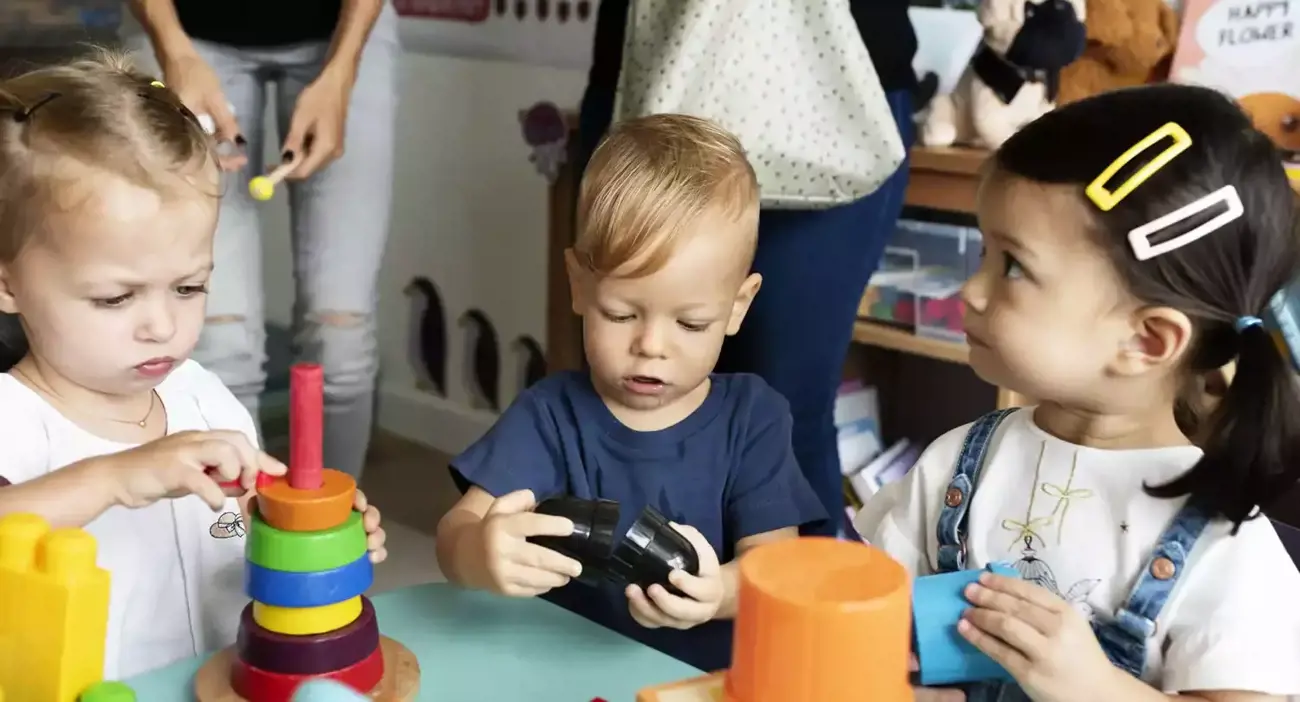There’s no doubt that young children look to their parents, educators and other adult care-givers for guidance on how to behave.
Grown-ups are role models, rule-makers, mentors and disciplinarians all rolled into one, and it’s our job to support littlies as they learn to regulate their emotions and behaviour and grow their pro-social skills and independence.
New research suggests that adults don’t have the sole say on preschoolers’ behaviour, though.
A new study by Duke University has found that by the time a child turns three, ‘The voice of adult authority isn’t the only thing that matters,’ and children start to behave in certain ways to fit in with the group.
Today, we look at this American research in more detail.
What’s the background to this behavioural study?
Duke researcher, Leon Li explains that, ‘Every culture has its dos and don’ts,’ and children aren’t born knowing how to behave in socially appropriate ways.
For example, a young child doesn’t automatically know that they should cover their sneeze, wait their turn, talk in their ‘quiet voice’, use cutlery, or say “Please” and “Thank you.”
Instead, Duke reports that, ‘Most of us begin to pick up on these unwritten social rules when we are very young, and quickly figure out when and how to follow them.’
With this is mind, the purpose of the study was to learn more about what makes young children ‘behave,’ and what’s really going on when a preschooler sees another person behaving in a certain way and, ‘Follows suit, against their own inclination.’
What did the Duke research involve?
To get a better sense of what motivates preschoolers to ‘fall in line’ with others and behave, the researchers invited 104 children, aged 3.5 years, to help set up a pretend tea party.
Each child entered the tea party room with their parent and two ‘experimenters’ (a host and an adult informant), and the participants were given a blue sticker to wear to show that they were part of the same team (“We are Duke!”).
A pretend video link was set up with a second playroom, showing another adult and six-year-old child also hard at work planning a tea party (though this was just a video recording).
The preschooler was then shown different kinds of plates, cups, teas and snacks, and asked to choose which types they preferred for the tea party – first on their own, and then after listening to the choices made by the adult or child party planner in the video.
The preschooler saw the other tea party planner ‘endorsing’ certain items by either:
- Framing their choice as a matter of personal preference (e.g. when they said “For my tea party today, I feel like using this snack”) or
- Presenting it as a conventional norm shared by a group (e.g. when they said, “For tea parties at Duke, we always use this kind of snack”).
As a result, the researchers found that most of the preschoolers who took part in this study stuck with their original choices after listening to the endorsements of the other party planners.
For instance, if a preschooler felt like using a donut snack initially, they settled on the donut, regardless of whether the other party planner chose an egg, cookie or piece of asparagus.
However, it’s interesting to learn that 23 per cent of the time, the preschoolers did change their choice to that of the other person. And when this happened, it was more likely that the fellow party planner had presented their endorsement as a conventional norm shared by the group, rather than a personal preference.
This happened whether the fellow party planner was the adult or six-year-old child, which suggests that, ‘The preschoolers weren’t simply acting out of a desire to imitate adults or obey authority.’
What does this mean in the broader scheme of children’s behaviour?
Although the researchers recognise that this study has limitations, it appears that when young children over-ride their own preferences to go with another person’s choice, they conform more to social norms than to personal preferences.
The researchers say, ‘These findings suggest that children are motivated to act conventionally, possibly as an adaptation for living in cultural groups’ as humans evolved, and the study complements earlier research about, ‘How children develop the moral reasoning capacity that sets humans apart from other animals.’
When it comes to age, it appears that:
- Infants and toddlers generally do as they’re told out of deference to their adult (e.g. when a parent says, “We don’t hit”).
- However, children’s thinking changes around the age of three and, ‘They begin to understand cues such as, “We don’t hit” as something larger, coming from the group, and act out of a sense of connectedness and shared identity.’
What this means is that preschoolers, ‘Are more likely to go along with what others say or do for the sake of following the crowd, rather than acting out of a desire to kowtow to authority or heed that person’s preferences per se.’
This doesn’t mean they won’t listen to what parents and other adult care-givers say or do, but fitting in with the group starts to matter around a child’s third birthday, and social norms shape behaviour.
This explains why it’s easier to get preschoolers to eat their broccoli at child care, rather than on their own at home, and you can read the study in depth here.
Reference



































